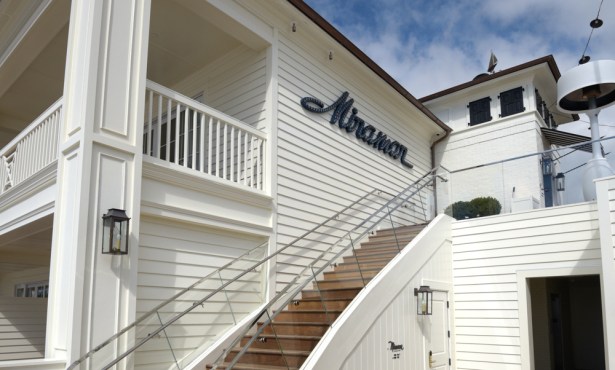City Council Sides with Waterfront Lumberyard Proposal
Makes Exception to "Ocean-Related Uses" Zoning

The outcome wasn’t remotely close — or ever in doubt for that matter — but the dustup was troubling and compelling. The immediate issue before Santa Barbara City Council was whether a conditional-use permit bestowed upon a new lumberyard and construction supply emporium at 35 North Calle César Chávez was valid. The broader issue is whether there’s enough storage space for Santa Barbara’s fishing industry to remain viable. Despite a last-minute appeal passionately waged by lobbyist and coastal crusader Mark Massara, the council voted 6-1, with Kristen Sneddon voting against, that the permit was legit and the project can go forward.
Massara, who grew up in Santa Barbara, argued that the lumber operation violates the ocean-dependent zoning adopted by City Hall in 1986. An exception can be granted only if ocean-related uses — such as a boat storage yard for the commercial fishing industry — have been determined to be infeasible. The Planning Commission voted 7-0 in December to grant that exception. The owners had spent $6 million refurbishing the property. What the fishing industry could afford to spend was much less than the property owner could afford to accept, planning commissioners concluded.
Massara noted that the Coastal Commission had never signed off on the plan and, in fact, had never been notified of it. City planners insisted they mailed notice to the Coastal Commission; if it wasn’t received, that wasn’t their fault. Only Councilmember Meagan Harmon expressed any doubt — the developers knew the ocean-related zoning restriction on the land when they bought it. Still, she voted to allow the project to proceed, citing the unanimous approval by the Planning Commission.
While the councilmembers were openly skeptical of Massara, they were more troubled by the testimony about the acute shortage of waterfront industrial real estate affordable to those in the fishing industry. Without such support functions, a $45-million-a-year industry will likely shrivel, thus impacting tourism and jeopardizing continued federal funding for harbor dredging — funding predicated on the existence of a working fishing fleet. Agents for the developer expressed sympathy and concern for such issues — as did all the councilmembers — but insisted it wouldn’t be right to punish the would-be lumberyard operators who had done so much to clean up a blighted parcel.



